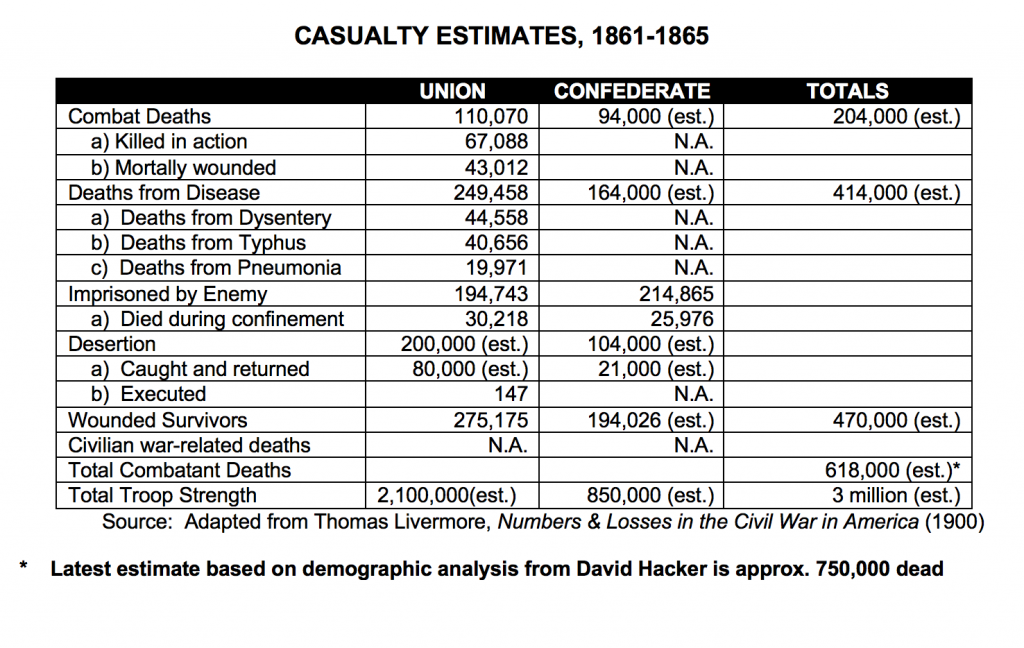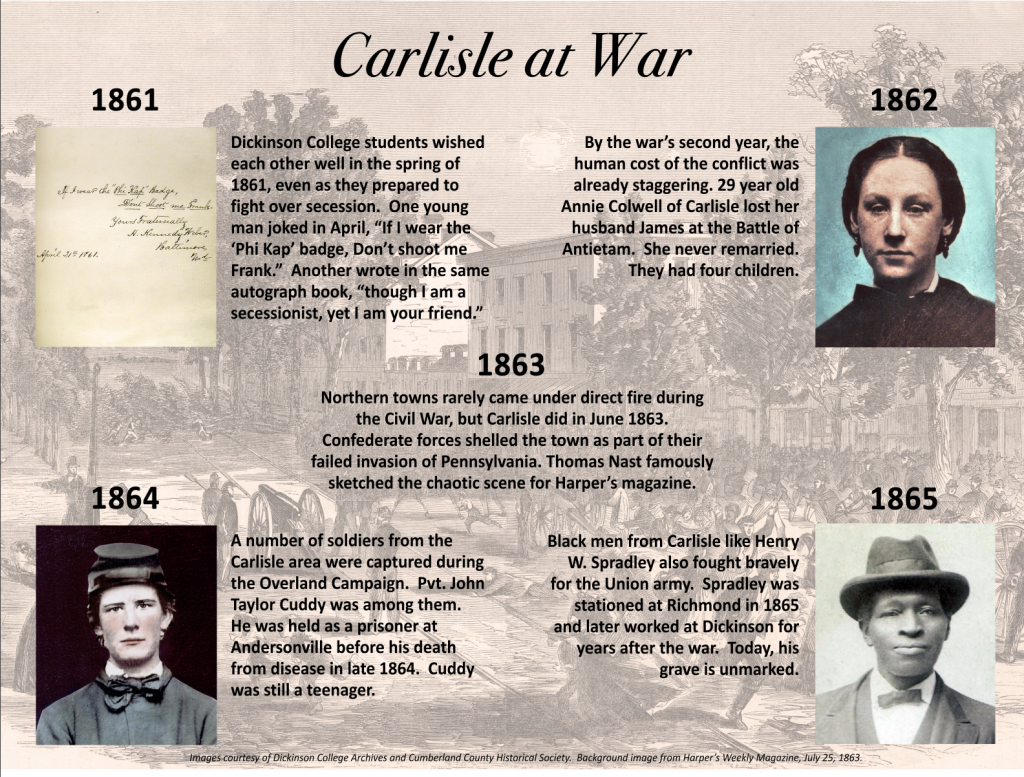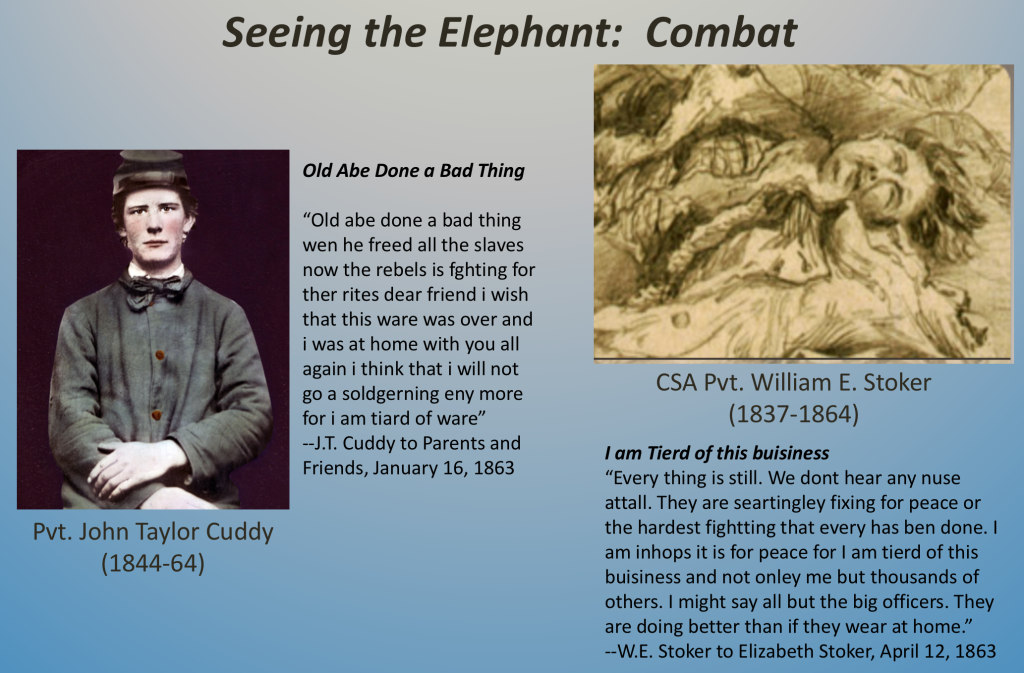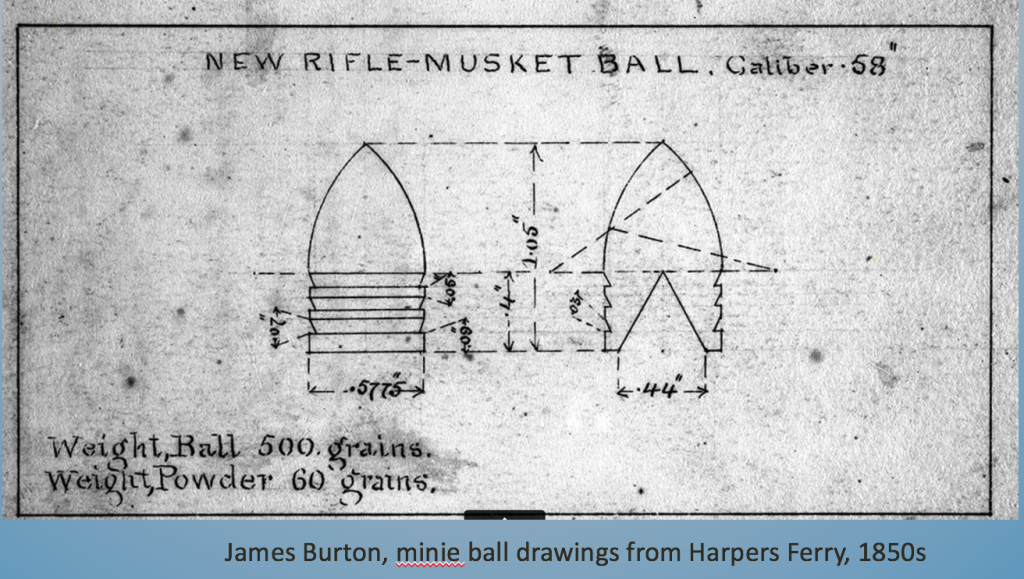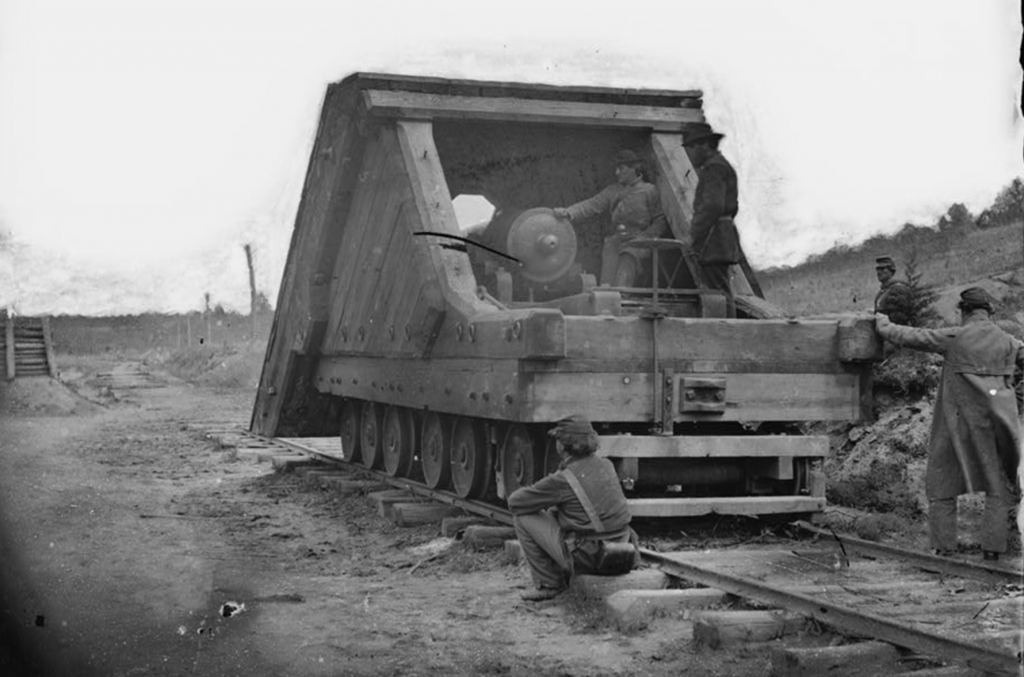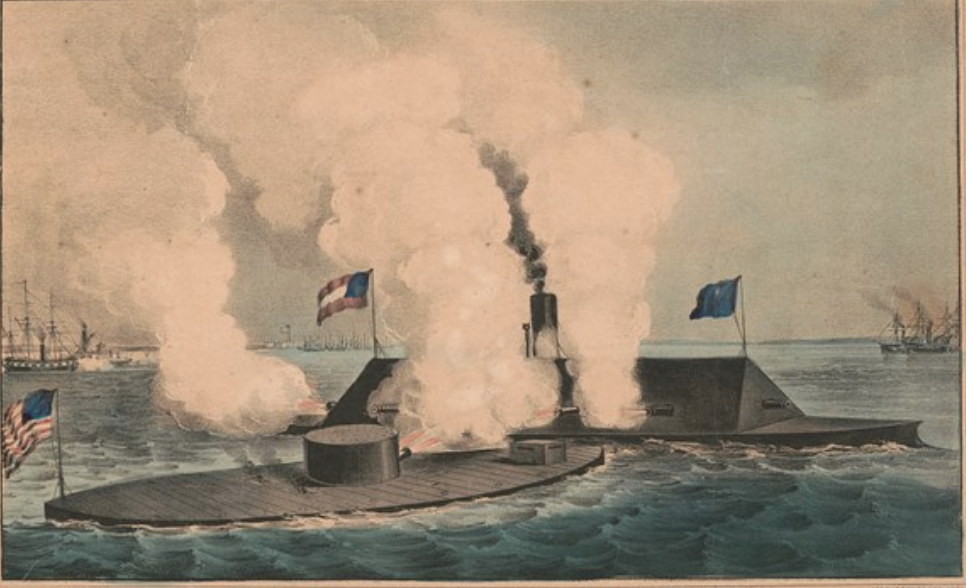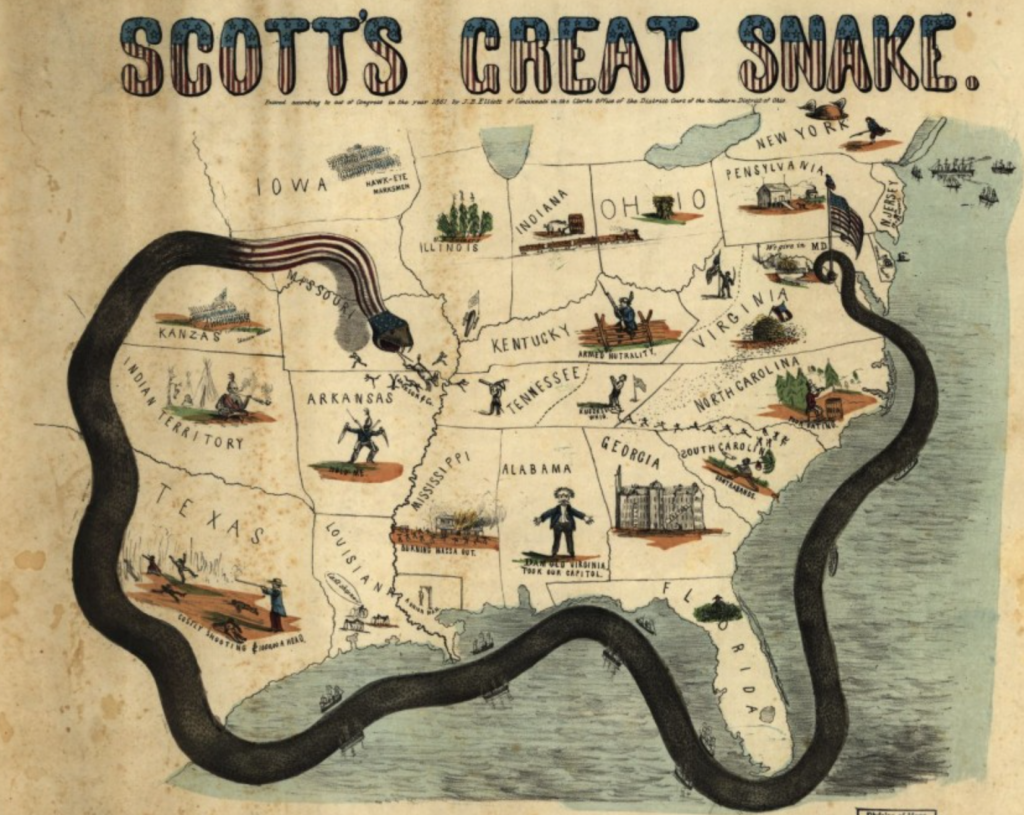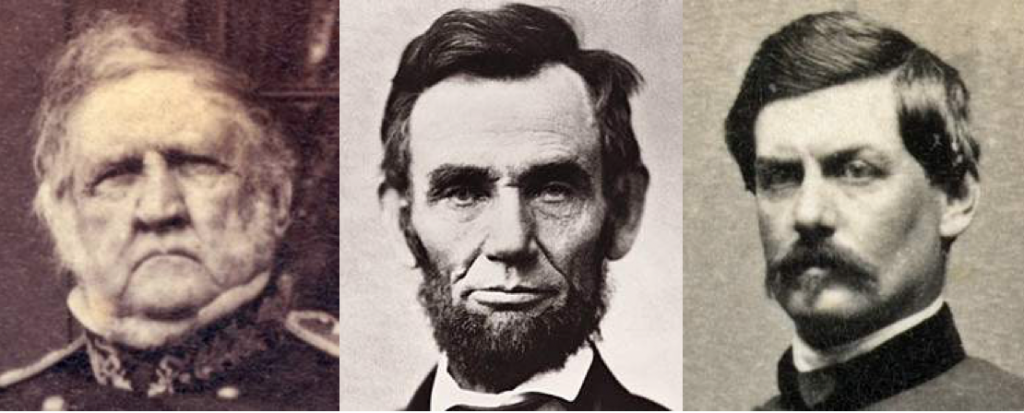Civil War: By The Numbers
Discussion Question
- What other numbers might matter most when summarizing the meaning of the Civil War, besides these casualty figures?
Civil War: By The Stories
Discussion Questions
- What do the stories of Carlisle@War illustrate about the political nature of the American Civil War?
- What can we learn from the griping of ordinary soldiers like John Cuddy or William Stoker?
Warfare and Technology
Civil War Strategy
Winfield Scott served as general in chief of the Union armies at the outset of the Civil War at the age of 74. He was a Virginian by birth and a Constitutional Unionist by choice. During the Sumter crisis in March and April 1861, he clashed with President Lincoln over strategy. Once the war began, Scott outlined a deliberate and Jominian-inspired strategy for the Union forces which newspaper’s nicknamed “The Anaconda Plan.” Lincoln –who was essentially a Clausewitzian by instinct though certainly not by training– also bristled against this strategic outlook. After months of tension, Scott finally retired from active duty in November 1861 replaced by 34-year-old Gen. George McClellan, a well-trained officer with Democratic leanings who largely tried to follow Scott’s original plan despite pressure from both the Republican president and the Republican-controlled Congress.
In spring 1862, McClellan moved his main field army to the Virginia peninsula to begin a major campaign. Anxious about the outcome of the campaign, in June 1862, President Lincoln went on an unannounced two-day visit to West Point, NY to meet with Gen. Scott. On Wednesday afternoon, June 25, 1862, on his way back to Washington, Lincoln spoke cryptically about his encounter with Scott to a crowd of supporters at a railroad depot in Jersey City, NY. This is all he said:
When birds and animals are looked at through a fog they are seen to disadvantage, and so it might be with you if I were to attempt to tell you why I went to see Gen. Scott. I can only say that my visit to West Point did not have the importance which has been attached to it; but it concerned matters that you understand quite as well as if I were to tell you all about them. Now, I can only remark that it had nothing whatever to do with making or unmaking any General in the country. [Laughter and applause.] The Secretary of War, you know, holds a pretty tight rein on the Press, so that they shall not tell more than they ought to, and I’m afraid that if I blab too much he might draw a tight rein on me.
Discussion Question
- What does Lincoln’s surprise meeting with Scott possibly reveal about his leadership as commander in chief?
Up next … learn more about Lincoln’s struggles to command his military subordinates at the Father Abraham page at Lincoln’s Writings

